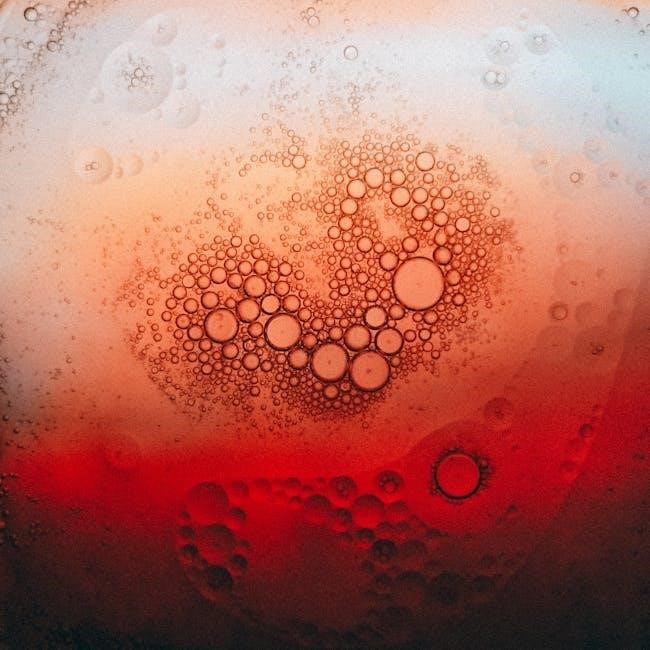David Klein, a renowned lecturer at Johns Hopkins University, revolutionized organic chemistry education with his innovative textbooks and teaching methods, making complex concepts accessible to students worldwide.
His “skills-based approach” and use of analogies transformed how students learn organic chemistry, emphasizing problem-solving and practical applications, making his textbooks indispensable for both beginners and advanced learners.
Who is David Klein?
David Klein is a Senior Lecturer in the Department of Chemistry at Johns Hopkins University, where he has taught organic and general chemistry since 1999. Known for his dynamic and creative teaching style, Klein has gained recognition for his ability to simplify complex concepts through analogies, making organic chemistry more accessible to students. His extensive experience in education has led to the development of innovative teaching methods, emphasizing problem-solving and practical applications. Klein’s passion for chemistry and dedication to student success have made him a respected figure in both academic and textbook communities, inspiring learners worldwide to master organic chemistry with confidence and clarity.
Overview of His Work in Organic Chemistry
David Klein’s work in organic chemistry is centered around his innovative approach to teaching and textbook development. He emphasizes a skills-based learning model, focusing on problem-solving and practical applications of fundamental concepts. Klein’s unique teaching philosophy integrates analogies to simplify complex ideas, making organic chemistry more intuitive for students. His textbooks, such as Organic Chemistry as a Second Language, are designed to build mastery through incremental skill development. By blending conceptual understanding with real-world applications, Klein’s work has redefined how organic chemistry is taught and learned. His contributions have significantly impacted chemistry education, providing students with tools to excel in both academic and professional settings.

Why His Textbooks are Popular Among Students
David Klein’s textbooks are widely popular among students due to their clear explanations, practical approach, and focus on skill development. His use of analogies simplifies complex organic chemistry concepts, making them easier to understand. The structured format and incremental learning approach help students build confidence and mastery. Additionally, Klein’s books are praised for their emphasis on problem-solving skills, which are essential for success in organic chemistry. The inclusion of study guides and solution manuals further enhances their value, providing students with comprehensive support. The popularity of his textbooks is evident from their multiple editions and widespread adoption, making them a trusted resource for learners at all levels.

Key Features of “Organic Chemistry” by David Klein
David Klein’s textbook excels with clear explanations, a practical approach, and a focus on skill development, making complex organic chemistry concepts accessible through problem-solving and real-world applications, supported by study guides and solution manuals.
Skills-Based Approach to Learning
David Klein’s textbook adopts a unique skills-based approach, focusing on building students’ proficiency in organic chemistry through structured problem-solving and practical applications. This method ensures learners master fundamental concepts while developing essential skills like mechanism drawing, synthesis design, and spectroscopy interpretation. By integrating these skills into each chapter, Klein’s approach enables students to apply theoretical knowledge to real-world scenarios, enhancing their understanding and confidence;

The textbook is designed to progressively build skills, starting with basic concepts and advancing to complex topics. This structured learning pathway, combined with Klein’s emphasis on critical thinking, prepares students for success in both academic and professional settings. The approach has been widely praised for making organic chemistry more accessible and engaging for learners at all levels.
Integration of Fundamental Concepts and Practical Applications
David Klein’s textbooks seamlessly integrate fundamental organic chemistry concepts with their practical applications, creating a comprehensive learning experience. By connecting theory to real-world scenarios, students gain a deeper understanding of how principles apply in laboratories and industries.
Klein’s approach bridges the gap between classroom learning and practical problem-solving, making complex topics more relatable. This integration helps students appreciate the relevance of organic chemistry in fields like pharmaceuticals, materials science, and environmental studies, fostering a more engaging and meaningful education.
Unique Teaching Methods and Analogies
David Klein’s teaching methods are distinguished by his innovative use of analogies to explain complex organic chemistry concepts. By comparing reaction mechanisms to everyday phenomena, he makes abstract ideas more tangible and accessible for students. This approach not only enhances understanding but also improves retention, as students can relate chemical processes to familiar experiences.
Klein’s analogies are carefully crafted to simplify intricate topics, such as reaction pathways and stereochemistry, into relatable scenarios. This unique method fosters a deeper connection between theory and practice, enabling students to approach problems with confidence and creativity. His ability to bridge the gap between abstract concepts and real-world applications has made his teaching style highly effective and memorable.

Textbook Structure and Content
David Klein’s textbooks are structured into two parts: “Organic Chemistry as a Second Language: First Semester Topics” and “Second Semester Topics.” His skills-based approach ensures comprehensive concept coverage, with a strong emphasis on practical skills development, making complex topics accessible and applicable for students.
Organic Chemistry as a Second Language: First Semester Topics

David Klein’s “Organic Chemistry as a Second Language: First Semester Topics” provides a comprehensive introduction to foundational concepts, including molecular structure, bonding, and functional groups. The textbook emphasizes problem-solving and practical applications, with a unique focus on skills development. Klein’s approach treats organic chemistry as a “second language,” making complex topics more accessible through analogies and clear explanations. The first semester material covers essential reactions, mechanisms, and spectroscopy, ensuring students build a strong foundation for advanced topics. By integrating fundamental concepts with real-world applications, Klein’s textbook has become a trusted resource for students seeking to master organic chemistry with confidence and clarity.
Organic Chemistry as a Second Language: Second Semester Topics
David Klein’s “Organic Chemistry as a Second Language: Second Semester Topics” delves into advanced concepts, building on the foundational skills introduced in the first semester. The textbook covers key areas such as synthesis, advanced reaction mechanisms, and bioorganic chemistry, with a strong emphasis on problem-solving and critical thinking. Klein’s unique approach continues to treat organic chemistry as a “second language,” using analogies and clear explanations to make complex topics manageable. The second semester material also explores spectroscopy, stereochemistry, and organic synthesis in depth, ensuring students develop a mastery of both theoretical and practical aspects of organic chemistry. This structured approach helps students transition seamlessly from basic concepts to advanced applications.
Special Emphasis on Skills Development

David Klein’s approach places a strong emphasis on skills development, recognizing that success in organic chemistry requires both conceptual understanding and practical application. His textbooks integrate problem-solving strategies, mechanism analysis, and synthesis planning to build proficiency. Unique features include “SkillBuilder” exercises, designed to enhance critical thinking and reaction prediction. By focusing on skills like drawing structures, identifying mechanisms, and designing syntheses, Klein empowers students to tackle complex problems with confidence. This method ensures that learners not only grasp the material but also develop the ability to apply it effectively, making his resources invaluable for academic and professional success in organic chemistry.
Editions and Updates
David Klein’s textbooks are available in multiple editions, with the 5th edition introducing enhanced SkillBuilder features and updated content to improve student learning outcomes significantly.
The 4th Edition of “Organic Chemistry”
The 4th edition of David Klein’s Organic Chemistry continues his innovative approach, focusing on skills development to help students master both fundamental concepts and practical applications. This edition builds on the success of its predecessors, refining the “skills-based” learning strategy introduced earlier. It includes all core organic chemistry topics while emphasizing problem-solving, mechanism analysis, and synthesis design. The textbook is accompanied by a Student Study Guide and Solution Manual, providing additional practice problems and detailed solutions. These resources enhance students’ ability to apply concepts to real-world scenarios, making the 4th edition a comprehensive tool for learners seeking to excel in organic chemistry. Its clear structure and engaging style have solidified its reputation as a leading educational resource in the field.
What’s New in the 5th Edition?
The 5th edition of Organic Chemistry by David Klein introduces enhanced features to further support student learning. Building on the successful SkillBuilder approach, this edition includes new interactive tools, expanded problem sets, and updated visual aids to clarify complex mechanisms. Additionally, Klein has incorporated more real-world applications to help students connect theoretical concepts with practical scenarios. The textbook also features improved analogies and streamlined explanations to make difficult topics more accessible. A revised Student Study Guide and Solution Manual are available, offering detailed solutions and additional practice problems. These updates ensure the 5th edition remains a cutting-edge resource for mastering organic chemistry, catering to diverse learning styles and reinforcing foundational skills.
Student Study Guide and Solution Manual
The Student Study Guide and Solution Manual are essential companions to David Klein’s Organic Chemistry textbook. The Study Guide offers practice problems, chapter summaries, and interactive exercises to reinforce learning. The Solution Manual provides detailed solutions to textbook problems, helping students understand problem-solving strategies and identify common mistakes. Together, these resources support a deeper understanding of organic chemistry concepts and skills. They cater to diverse learning styles and are updated regularly to align with the latest edition, ensuring relevant support. Additionally, they enhance independent study by providing tools for self-paced practice and review.

Teaching Philosophy and Resources
David Klein emphasizes creative teaching methods, using analogies and interactive tools to simplify complex concepts, supported by comprehensive study guides and online resources for enhanced learning.
Use of Analogies in Teaching Organic Chemistry
David Klein’s teaching philosophy revolves around simplifying complex organic chemistry concepts through relatable analogies. By comparing abstract ideas to everyday scenarios, he makes the subject more accessible. For instance, he likens orbital hybridization to mixing ingredients in a recipe, helping students visualize and retain key concepts. This approach not only enhances understanding but also builds confidence, especially for those struggling with abstract theories. Klein’s use of analogies bridges the gap between theory and practical application, ensuring students grasp the fundamentals intuitively. His innovative method, combined with interactive tools and study guides, fosters a deeper engagement with the material, making his textbooks a go-to resource for learners worldwide.

Interactive Learning Tools and Resources
David Klein complements his textbooks with interactive learning tools and resources to enhance student engagement and understanding. His “SkillBuilder” approach includes practice problems, step-by-step solutions, and interactive exercises that reinforce key concepts. The accompanying Student Study Guide and Solution Manual provide additional support, offering detailed explanations and worked examples. Online supplements, such as interactive simulations and video tutorials, further enrich the learning experience. These resources cater to diverse learning styles, allowing students to grasp complex topics at their own pace. By integrating traditional textbook content with modern digital tools, Klein ensures students are well-equipped to master organic chemistry, making his materials indispensable for academic success.
Support for Students Beyond the Textbook
David Klein extends his support for students through additional resources designed to enhance their understanding and retention of organic chemistry concepts. The Student Study Guide and Solution Manual provide detailed explanations, practice problems, and step-by-step solutions, enabling students to reinforce their learning. Klein also offers online supplements, including video tutorials and interactive simulations, to cater to diverse learning styles. These tools allow students to visualize complex reactions and mechanisms, making abstract concepts more tangible. Furthermore, Klein’s materials encourage active learning by promoting problem-solving and critical thinking. By providing a comprehensive suite of resources, Klein ensures students have the support they need to excel in organic chemistry, both inside and outside the classroom.

Impact on Organic Chemistry Education
David Klein’s textbooks and teaching methods have revolutionized organic chemistry education, fostering a skills-based approach and transforming how students and educators engage with the subject globally.
Success Stories and Student Feedback
David Klein’s textbooks have received widespread acclaim for their effectiveness in teaching organic chemistry. Students praise his clear, concise writing style and the logical structure of his books. Many have shared success stories of how his “skills-based approach” helped them master complex concepts and improve problem-solving abilities. The integration of fundamental concepts with practical applications has been particularly appreciated, making his texts indispensable for both undergraduate and graduate studies. Feedback highlights how Klein’s unique teaching methods, such as analogies and real-world examples, make learning organic chemistry engaging and accessible. His work has empowered countless students to excel in the subject, fostering confidence and a deeper understanding of chemistry.
Adoption in Academic Institutions
David Klein’s textbooks have been widely adopted by universities and colleges globally, becoming a standard resource for organic chemistry courses. Their comprehensive coverage and innovative approach have made them a favorite among educators. Many institutions have incorporated his books into their curricula, praising their ability to engage students and enhance learning outcomes. The clear presentation of concepts and emphasis on skill development make them ideal for both lectures and self-study. As a result, Klein’s works are not only popular among students but also highly recommended by professors, ensuring their continued use in academic settings worldwide.
Legacy in Organic Chemistry Education
David Klein’s impact on organic chemistry education is unparalleled, leaving a lasting legacy through his textbooks and teaching philosophy. His innovative approach has redefined how students and educators engage with the subject. By emphasizing skill development and practical applications, Klein’s work has empowered countless learners, making organic chemistry more accessible and less intimidating. His books are celebrated for their clarity and effectiveness, ensuring his influence extends beyond the classroom. As a result, Klein’s contributions have set a new standard in chemical education, inspiring future generations of chemists and educators alike. His legacy continues to grow, solidifying his place as a pioneer in the field.
